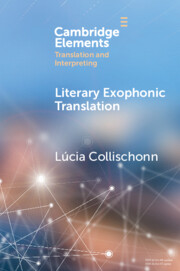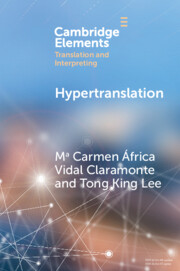Interest in translation and interpreting studies has grown considerably in the last three decades across the world. The need for translation and interpreting in public service settings within multilingual societies has grown along with global migration, while traditional foci for research into the translation and interpreting of traditional text types in traditional settings remain vibrant. Advances in machine learning and AI have raised questions about the future interaction between human translators and interpreters and machines, and the discipline has embraced intralingual and intermodal translation requirements, especially modalities of translation related to media accessibility.



About the editors
The series is edited by Kirsten Malmkjær with Sabine Braun as associate editor for Elements focusing on Interpreting.
Kirsten Malmkjær is Professor Emeritus of Translation Studies at the University of Leicester. She has taught Translation Studies at the universities of Birmingham, Cambridge, Middlesex and Leicester and has written extensively on aspects of both the theory and practice of the discipline. Translation and Creativity (London: Routledge) was published in 2020 and The Cambridge Handbook of Translation, which she edited, was published in 2022. She is preparing a volume entitled Introducing Translation for the Cambridge Introductions to Language and Linguistics series.
Sabine Braun is Professor of Translation Studies and Director of the Centre for Translation Studies at the University of Surrey. She is a world-leading expert on interpreting and on research into human and machine interaction in translation and interpreting, and holds an Expanding Excellence in England grant to investigate technology-assisted methods, modalities and socio-technological practices of translation and interpreting. She has written extensively on the theory and practice of interpreting, including Videoconference and remote interpreting in criminal proceedings, with J. Taylor, 2012; Here or there: Research on interpreting via video link, with J. Napier and R. Skinner, 2018. She is editing Innovation in audio description research, with K. Starr (2019), and guest-editing a special issue of the Interpreter and Translator Trainer with Russo (2020). She is a member of the AHRC Peer Review College.
An International Editorial Board of experts ensure the high quality of the series.
Contact the Editors
If you would like more information about this series, or are interested in writing an Element, please contact Kirsten Malmkjær at [email protected]
About the Editorial Board
This series also features Elements on all aspect of translation and interpreting, including:
First Elements (expert surveys)
Focused Elements and Master Classes on cutting edge topics